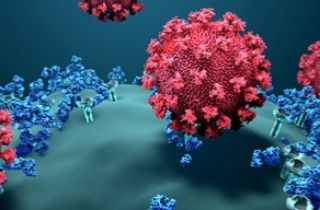ARK previously detailed the tactical advantages Tesla would enjoy if it were to launch a vertically integrated ride-hail service. Here, we detail the strategic logic of Tesla launching that service.


ARK previously detailed the tactical advantages Tesla would enjoy if it were to launch a vertically integrated ride-hail service. Here, we detail the strategic logic of Tesla launching that service.


There are several ways to generate power from that mixing. And a couple of blue energy power plants have been built. But their high cost has prevented widespread adoption. All blue energy approaches rely on the fact that salts are composed of ions, or chemicals that harbor a positive or negative charge. In solids, the positive and negative charges attract one another, binding the ions together. (Table salt, for example, is a compound made from positively charged sodium ions bound to negatively charged chloride ions.) In water, these ions detach and can move independently.
By pumping the positive ions—like sodium or potassium—to the other side of a semipermeable membrane, researchers can create two pools of water: one with a positive charge, and one with a negative charge. If they then dunk electrodes in the pools and connect them with a wire, electrons will flow from the negatively charged to the positively charged side, generating electricity.
In 2013, French researchers made just such a membrane. They used a ceramic film of silicon nitride—commonly used in industry for electronics, cutting tools, and other uses—pierced by a single pore lined with a boron nitride nanotube (BNNT), a material being investigated for use in high-strength composites, among other things. Because BNNTs are highly negatively charged, the French team suspected they would prevent negatively charged ions in water from passing through the membrane (because similar electric charges repel one another). Their hunch was right. They found that when a membrane with a single BNNT was placed between fresh- and saltwater, the positive ions zipped from the salty side to the fresh side, but the negatively charged ions were mostly blocked.

😯 Earth isn’t the only place with rivers, lakes & seas. Saturn’s moon Titan has them, too — not of water, but liquid methane & ethane! This frigid world even hides a liquid water ocean deep beneath its surface.
Here’s what you need to know about Titan: https://go.nasa.gov/2Jost2M

“Benjamin and Tina Gibson were blessed on Nov. 25 with their “sweet miracle:” Baby Emma Wren, weighing in at 6 lbs., 8 oz., and 20 inches long, the National Embryo Donation Center announced Tuesday.
But what makes Emma a “miracle” child? Having been cryopreserved for twenty-four and a half years, she’s the longest known frozen human embryo to result in a successful birth.”
😲
New mom gives birth to embryo that was frozen for 24.5 years.

Final Countdown
NewRocket expects to have a product available in the new future, and is also trying to develop new rockets that use the fuel, according to The Times of Israel.
“Rockets that don’t use controllable engines run their engines until they exhaust the fuel,” NewRocket CEO Ilan Harel told The Times of Israel. “Those that are using controllable engines either use highly toxic fuels, which can be stored for long time, storable fuels, or they use cryogenic fuels which are considered nontoxic but are used only for short duration, non-storable.”


Coherence times in quantum computing have increased by orders of magnitude since the early 2000s. If this exponential progress continues, coherence times measured in seconds or even minutes could be achieved in the near future.
When discussing the latest quantum computers, most people tend to focus on the number of quantum bits (or qubits) in a system. However, while qubit counts are a very important factor, another key metric is coherence time, which measures how long a qubit can hold information.
In order to generate complex mathematical calculations, a qubit needs to hold information for as long as possible. That requires physical qubits to remain highly isolated from the surrounding environment. When a qubit is disrupted by external stimuli – such as background noise from vibrations, temperature changes or stray electromagnetic fields – information about the state of that qubit “leaks out” in a process known as decoherence. This can ruin the ability to exploit any quantum effects. Longer coherence times enable more quantum gates to be utilised before this occurs, resulting in more complex calculations.

COVID-19 Research: Chinese researchers from the Beijing Institute of Biotechnology, Academy of Military Medical Sciences (AMMS)-China led by Professor Dr Wei Congwen, have found the role of an HDL (high-density lipoprotein) receptor in the facilitation of entry of the SARS CoV-2 into human host cells.
The SARS-CoV-2 infects host cells through binding of the viral spike protein (SARS-2-S) to the cell-surface receptor angiotensin-converting enzyme 2 (ACE2).

Simulations that model molecular interactions have identified an enzyme that could be targeted to reverse a natural aging process called cellular senescence. The findings were validated with laboratory experiments on skin cells and skin equivalent tissues, and published in the Proceedings of the National Academy of Sciences (PNAS).
“Our research opens the door for a new generation that perceives aging as a reversible biological phenomenon,” says Professor Kwang-Hyun Cho of the Department of Bio and Brain engineering at the Korea Advanced Institute of Science and Technology (KAIST), who led the research with colleagues from KAIST and Amorepacific Corporation in Korea.
Cells respond to a variety of factors, such as oxidative stress, DNA damage, and shortening of the telomeres capping the ends of chromosomes, by entering a stable and persistent exit from the cell cycle. This process, called cellular senescence, is important, as it prevents damaged cells from proliferating and turning into cancer cells. But it is also a natural process that contributes to aging and age-related diseases. Recent research has shown that cellular senescence can be reversed. But the laboratory approaches used thus far also impair tissue regeneration or have the potential to trigger malignant transformations.